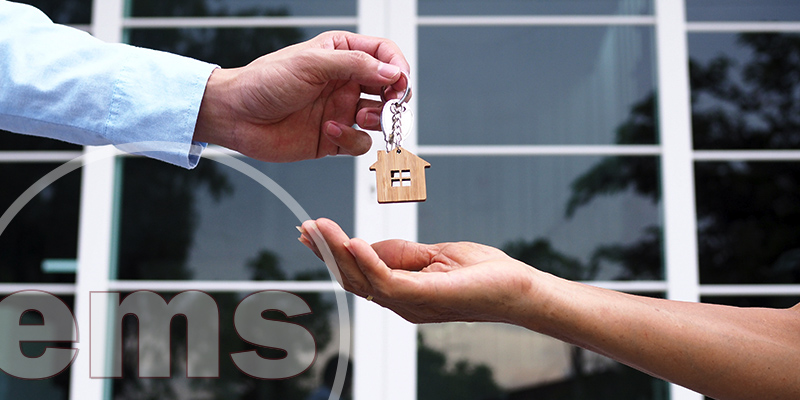With the increased popularity of lodging apps and services like Airbnb, HOA communities are facing more problems with short-term rentals. Before banning it outright, though, your HOA board should take a look at the issue from every perspective.
In this article:
The Right Way to Handle Short-Term Rentals
It is normal for homeowners to rent out their properties to tenants to make extra money. Compared to a traditional lease, though, short-term rentals last for a much shorter period of time. This can be anywhere from an overnight stay to a couple of weeks at a time. While most short-term rentals take place in destination areas, it is not unheard of for HOAs in cities or suburban areas to experience them, too. In fact, with Airbnb, short-term rentals, especially in condos, have seen a surge in demand.
While most people prefer HOA and COA short-term rentals over pricier hotels, they have become a nuisance for association boards. One of the primary reasons why associations frown upon short-term rentals is due to the problems tenants bring. Not all tenants behave the same way. With short term condo rentals, a community association may see a rise in noise, traffic, vandalism, and other issues. These problems may not seem like much at a glance, but they can pile up over time. Before long, home or condo owners will start to complain.
Although your association board can choose to ignore the issue with short-term rentals right now, you will eventually need to face facts. Sooner or later, a homeowner will rent out their property and cause trouble for you. It is best to get ahead of the problem and deal with short-term rentals while it is still early. But, how can you do that exactly?
Check the Law and Your Governing Documents
 The first thing you must do is to check state and local laws. If you live in an area where local laws restrict how short-term rental providers like Airbnb operate, your problem is half solved. For instance, San Francisco enacted a policy that capped rentals at 90 days and required hosts to register with the city, among other things.
The first thing you must do is to check state and local laws. If you live in an area where local laws restrict how short-term rental providers like Airbnb operate, your problem is half solved. For instance, San Francisco enacted a policy that capped rentals at 90 days and required hosts to register with the city, among other things.
There may also be permits and taxes involved, such as the transient occupancy tax. Consult with your association’s attorney to see what regulations apply to you.
After checking your state and local laws, you must next look at your association’s governing documents. Some associations already have HOA short term rental restrictions in place. In that case, all you need to do is follow the protocols and procedures laid out in your governing documents.
It is equally important, though, to review the existing restriction language used. Homeowners may find loopholes and exploit them in their favor. If you find any vague condo association rules on short-term rentals, make sure to amend them as soon as you can. Again it is best to get the help of your attorney when revising restriction language. An attorney can make sure any alterations do not conflict with existing covenants or the law itself.
Regulate Short-Term Rentals
If your condo’s rules do allow short-term rentals (or if you decide to allow them), it is a good idea to create regulations to keep them under control. Sit down with your fellow board members and attorney to craft a Short-Term Rental Policy. While such a policy may vary from association to association, as a general rule of thumb, it may include the following:
- Property owners must provide rental information to management, including start and end dates as well as tenant details (name and contact info)
- A reasonable short-term rental fee to cover any added costs
- Property owners and tenants must sign a Short-Term Rental Agreement, which outlines the rules (pool use, common area regulations, noise hours, outdoor fires, etc.)
- The board may impose fines against property owners who violate the Short-Term Rental Policy
- Maximum occupancy limits
Home and condo owners must recognize that the tenants they rent out to are their responsibility. Any violations their tenants make must be shouldered by the property owners.
When you allow short-term rentals, your board must also notify your association’s insurance provider. Keep in mind that your insurance rates may increase as a result. You can choose to cover the cost of this using association funds or pass it on to the owners who wish to rent out their properties in the short-term. The same owners should also look into additional insurance for short-term rentals.
Guidelines for Prohibiting Short-Term Rentals
On the other hand, if your association prohibits short-term rentals, there are some things to keep in mind as well. The first thing you must do is create a policy emphasizing your association’s stance on short-term rentals.
This policy must also include what constitutes a short-term rental, how your board intends to enforce these rules, and what property owners can expect to face should they violate them. Most of the time, it will involve hefty fines to deter violators.
When drafting your short-term or Airbnb HOA violation fees, you can break them down into two categories: listing their property and renting their property. For listing properties, you can let owners off with nothing but a strong warning for the first instance. On the second offense, though, you can levy up to $100, doubling that amount for each succeeding offense. For renting properties, the first offense can carry a fine of up to $500. Again, that amount can double with every subsequent offense.
Enforcing HOA Rules on Airbnb or Short-Term Rentals
 After writing this policy and getting approval from your attorney, it is important to notify all residents of the change or new policy. Of course, making the policy is arguably the easy part. To enforce the policy, your board must monitor your properties to ensure no one breaks it. There are short-term rental monitoring services you can utilize. These services check the internet on the regular and let you know if any properties within the HOA community are listed.
After writing this policy and getting approval from your attorney, it is important to notify all residents of the change or new policy. Of course, making the policy is arguably the easy part. To enforce the policy, your board must monitor your properties to ensure no one breaks it. There are short-term rental monitoring services you can utilize. These services check the internet on the regular and let you know if any properties within the HOA community are listed.
Make sure to have an investigation process as well. For instance, if a neighbor files a complaint against a homeowner in violation of the policy, you must not immediately take the neighbor’s word for it. Instead, send notice to the homeowner in question that you have received a report. Then, ask that homeowner to provide evidence to defend themselves. The neighbor might have misheard or misinterpreted the situation.
Homeowner Feedback Is Necessary
Short-term rentals can be hard to manage, even for the veteran HOA leader. Laws change constantly, and there are new short-term rental services popping up on the regular. While your board should act in the best interest of the community at large, you must still obtain input from residents before making a stance on short-term rentals.
Many associations encounter difficulties when managing short-term rentals. If your HOA is the same way, consider calling an HOA management company like Elite Management Services for help. Give us a call at (855) 238-8488 or email us at help@emspm.com.
RELATED ARTICLES:
- Dealing With Difficult Homeowners
- HOA Rules and Regulations | What To Know
- Dealing With HOA Violations For Homeowners







